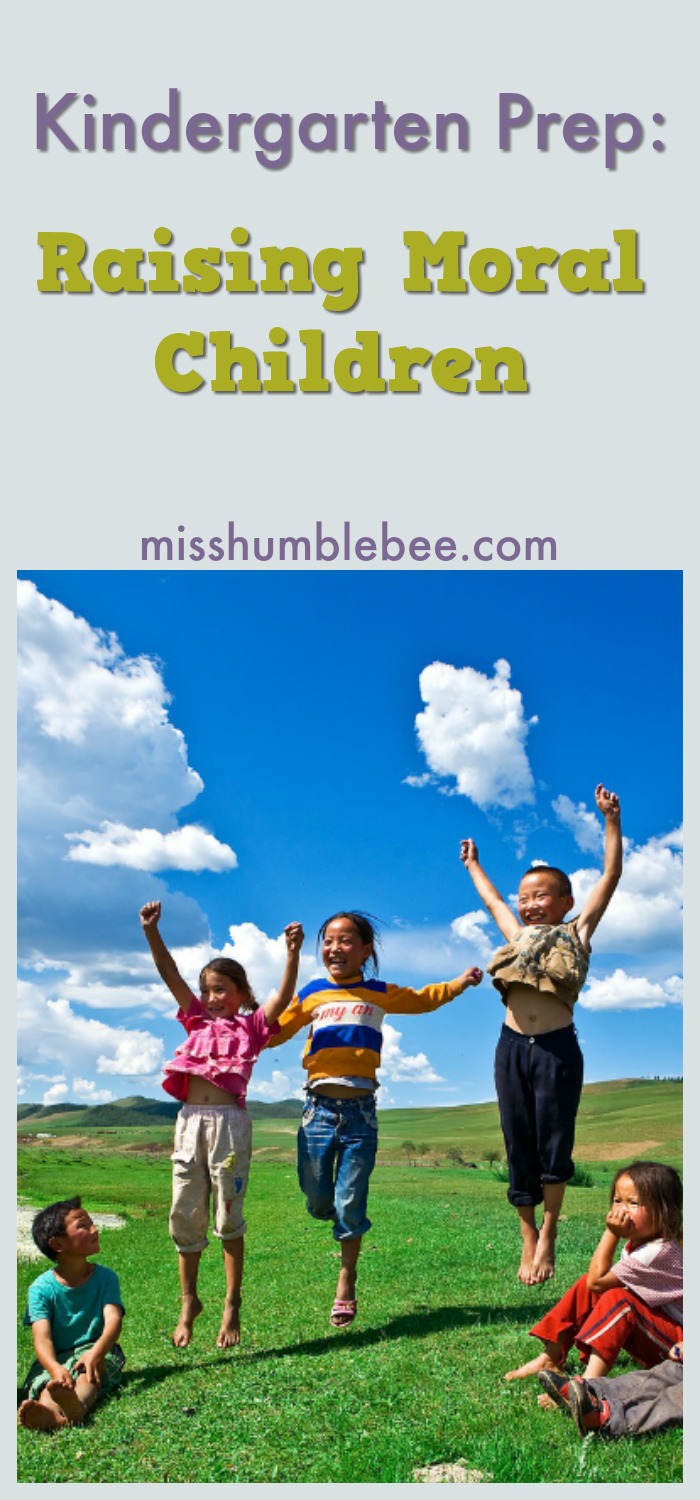Below: Raising moral children starts early and takes effort. These tips will help.
The early years in life are perhaps the most important when it comes to instilling values in children. In fact, it can easily make the difference between raising a kind or indifferent child. Here are some helpful kindergarten prep tips for raising kids that genuinely care about others.

Kindergarten Prep- Raising Moral Children
Most psychologists agree that morality is not something one is born with; it must be taught. Yet, some children are naturally easier to teach than others.
Moral decisions of choosing right over wrong and being nice to others are learned within the frontal lobe region of the brain. Once this section is fully developed, teaching values can be nearly impossible. That is why it is never too early to teach important values and it should be done as soon as possible.
Be a Role Model
Since children learn by example, it is up to parents to be positive role models. For instance, if your child sees you being mean or cruel to animals or humans, he or she may think this is acceptable behavior. On the other hand, if you exhibit compassion for others, a child learns that this type of behavior is good and will try to repeat it.
Read Together
If you are looking for ways to instill kindness and empathy in children, you can do so with books. Reading to a child is important one-on-one activity that makes them feel special, and if you read a book about kindness or goodness, these things will stay with him or her all through life.
As you read, stop occasionally to examine illustrations and talk about the story. Ask questions to see if the young person has been listening and paying attention. If you do not receive the answers you like, then go back and reread a certain section or chapter.
Teach Manners
Teach children the importance of the magic word “please”. However, it could be a huge mistake to force this action. For example, insisting that he or she say “please” in order to receive a treat or reward may result in resistance and frustration. Instead, try an indirect approach. Make a game out of it and praise the child each time the word “please” is spoken. This way, it is associated with something pleasurable and not a forced action.
Let Them Practice
Young children can be role models for kindness. For example, if your child has a younger sibling or cousin, teach the importance of being nice. Every time the child is kind to the sibling, make a big fuss and heap on the praise. This will make your child feel good and want to repeat the behavior, and it will make an impression on the younger sibling or relative as well.
It may be easier than you think to raise a child who is kind to others. In fact, the difference can be in the way that you approach the subject. Show little interest and let the kids find out on their own, and you will most likely have children that care little about anything (including you). Be a positive role model and use positive reinforcement with proven methods for learning kindness, and you may eventually get the results you seek.










